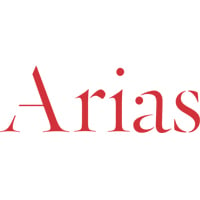
|




The senior manager and six equally-ranked young lawyers of the team are passionate about the technology and artificial intelligence industry. Because of experience and tasks distributions, some of the team’s junior lawyers have assumed additional roles, specifically two of them: Montserrat Ortega and David Duncan. Both are currently the ones giving assistance to delegated tasks from the senior manager, such as attending sensitive meetings with stakeholders and providing legal training.
Although the team is relatively new within Infosys, mainly dedicated to corporate, labour and contractual law for the technology and artificial intelligence industry, our greatest achievement has been to adapt the needs and demands of the industry with legal advice of the highest level in a short period of time.
Specifically, the team is currently working on a global contract management legal project. The project involves several stakeholders around the world, as well as complex research and information analysis in order to move forward. It combines technical legal knowledge in contracts law along with the implementation of artificial intelligence. It all combines from end to end, until the contracts are fully executed.
The cultural aspect is always there. That process of cultural adaptation sometimes could take longer than usual. But, more than a challenge, we believe working for an Indian multinational corporation in the tech industry has been a fully learning experience. Costa Rica’s law industry is definitely not used to the daily management and use of artificial intelligence and electronic and digital tools to process legal work or to deliver legal results both internally and externally in this way. So to be able to apply legal knowledge with the assistance of a diversity of digital tools that gives you the possibility to achieve efficiency and promptness, especially in the contract management process, is both a challenge but also a learning experience that cannot be ignored.
This is no secret as of now – the dynamic as an in-house is very different when compared to a team within a law firm, for example. It is elementary that an in-house team understands, from the very beginning, the background and needs of its organisation and the rest of stakeholders. This is commercial awareness. Only this can give the team a sense of how and when its job should be done. By doing this, an in-house team can focus on their strengths and can improve their weaknesses, and start to apply the knowledge from a specific law area which is critical for the company.
Additionally, excellent time management is key. An in-house team needs to have their specific tasks well distributed. If not, time and efficiency will get totally lost, with a detrimental effect on every stakeholder. An in-house team needs to be fully aware of their stakeholders’ needs, and draw a line between the work load that can be managed in-house and the work load that needs to be outsourced. This is critical; a badly run in-house team will always have an impact on the organisation.
And finally, the ability to work and apply your soft skills. You are not working only with lawyers, but also with several other kinds of professionals. Tolerance, empathy and emotional intelligence are key.
Process automation has come to help certain tasks be performed faster. The team has understood that technology is an ally. Specially, it is an ally in regards to time management and effectiveness. We have understood as well that technology and artificial intelligence could be our right hand, helping us to process tasks that otherwise could be time consuming. But we also understand that this cannot be applied to everything, and it will never fully replace human knowledge. Certainly not totally in the legal field, where case by case analysis over infinite and different facts, situations, rules and policies is always needed.
We are seeing this right now. Digital tools that give you possible answers and solutions to solve particular issues, to perform due diligence and backgrounds tasks and checks in an accurate manner, to flag high risks in a particular contract, negotiation or litigation. Digital tools that give you the possibilities and predictions to move forward with a legal case or not. Search engine systems that help you access legal information. Artificial intelligence that gives you a steady hand in contract management. Possibly and based on the industry we are in right now, the latter as well as due diligence tasks and checks could be two of the areas that could be continuing acquiring relevance in the next years.
Infosys BPM: Where legal knowledge meets technology As a global leader in next-generation business process management service, and with 32 delivery locations spread across 19 countries, Infosys BPM has been operating in Costa Rica since 2013. It recently formed and put in practice an in-house team of lawyers, led by Carlos M. Cartín Feoli as the Senior Manager who is an experienced Costa Rican lawyer and notary public, former legal counsel for the Ministry of Foreign Trade of Costa Rica, former legal counsel for the Foreign Trade Promotion Agency of Costa Rica PROCOMER, and former country legal manager for Costa Rica for the real estate international corporation Grupo Roble. Within Infosys BPM, the team is currently and mainly focusing on international contract law and contract management.